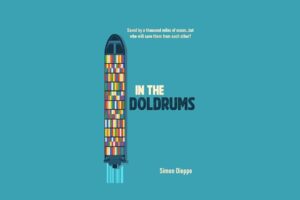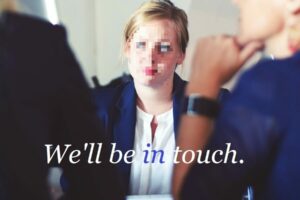The great thing about sci-fi is that it is delectably diverse; you can write about anything from the skies to the seas, aliens to robots, alternative pasts to the possible extremities of our futures…nothing is off limits to this genre. However, imagination is a product of reality, and so surely there is only so much that an author can create before encroaching on possible actualities? If a dystopian writer is envisioning sociological ‘what ifs’, could we expect some works to eventually develop into a ‘what was’?
To demonstrate how the terrified speculations of our elders have materialised into accepted everyday knowledge for us and for our future generations, here is a list of self-accumulated evidence from writers and their novels. Politicians and scientists…I’m afraid imagination will always get there first, so you might want to take note here.
- First off, the obvious…George Orwell’s Nineteen Eighty-Four predicted that Big Brother will be watching us. I’m sure everyone is aware of the extensive amount of CCTV in the UK, the huge back-log of information stored whenever we go online and, incredibly, to make things easier for ‘them’ we’re all relaying personal details about ourselves on social networking sites. They know where you are, what you’re doing and what you had for lunch. Poor Mr Orwell, he thought freedom lied with the proles, but the proles are the ones guaranteeing that his worst fears are realised.
- In the ’80s, Margaret Atwood predicted e-books, the increase of credit card payments over the handling of cash, and the idea that Islamic fanatics would be the catalyst for a restrictive, security-obsessed society. When things are going tits up in the Handmaid’s Tale, the narrator says that although Islamic terrorists are in the spotlight for causing America to be transformed into a rigid, sexist prison, ‘there wasn’t an enemy you could put your finger on’. It seems that America have always been flailing in the dark, blaming whoever they get their hands on first in order to appease a nation that needs a villain.
- Anthony Burgess’ A Clockwork Orange has a slightly different sentiment to the aforementioned novels, but nonetheless his prediction that laws and rights can be dismissed by the whim of the public, even if it is for a rapist murderer, seems to have become an actual possibility in today’s media-obsessed society. The character of Alex is forgiven for his crimes at the end of the novel and allowed to rejoin the world, all because of the negative media attention surrounding his attempted suicide. The huge number of celebrities that bypass jail time nowadays is sickening, and if the public are convinced of innocence then no matter how the courts react, the individual’s fate has already been decided. Campaigns for freedom crop up all over the Internet, most recently for Pussy Riot. I am not protesting their guilt nor their innocence, all I’m saying is that with the amount of press coverage surrounding the issue I’m sure they will be freed sooner rather than later.
- Personally I think one of the greatest scientific predictions in dystopian literature is the idea of ‘test tube babies’ in Brave New World by Aldous Huxley. Although the idea of artificial insemination had been around for over a hundred years prior to the publication of the novel, the technique was not established and the ethics surrounding it were not really dealt with until the ’80s – so Huxley was about fifty years early in noticing the importance that it could have for us. Cloning and IVF is no longer seen as an unnatural threat to society, but as a vision of progress. Will progress ever become a negative thing?
- And finally We by Yegveny Zamyatin, and his prediction that we will all be seen as nothing but a number by the government and ultimately each other. The book was published in 1921 after Zamyatin’s experiences during the Russian Revolutions of the early 1900s and, after having witnessed citizens struggle against the powers that be, the man must have felt deeply affected by the individual struggles that eventually resulted in mass chaos. Perhaps it has always been this way, but nowadays we are known as the employed, the unemployed, the student, the graduate, the single parent, the divorced, the single, the higher pay-grade and the menial worker… There are too many people in the world for everyone to be viewed individually, but instead of feeling as if we belong to a typical category we are pushed into feeling more and more isolated. The desire to be in a different category/social class will always be there.
It’s evident that we are living in some writer’s worst nightmares, but the change has been gradual or unavoidable for us. What was once a warning of how bad it could get is now a surreal insight into how things actually are. Would Orwell sign up to Facebook and Twitter if he lived in the twenty-first century? Would Burgess support a petition to release Pussy Riot from prison if he had known about it?
But would I fight wars as most of these authors had done, and would I back revolutions and risk my life for the greater good? I can’t imagine that I could find the courage to do this in the near future – it would take a lot for me and people like me to rebel against the governing bodies I entrust my safety to. We are different people now, but whether we are better people is arguable. What these novels show is that somewhere inside all of us we all have that line that cannot be crossed, but where is it? And what we do if it was?



Leave a Reply